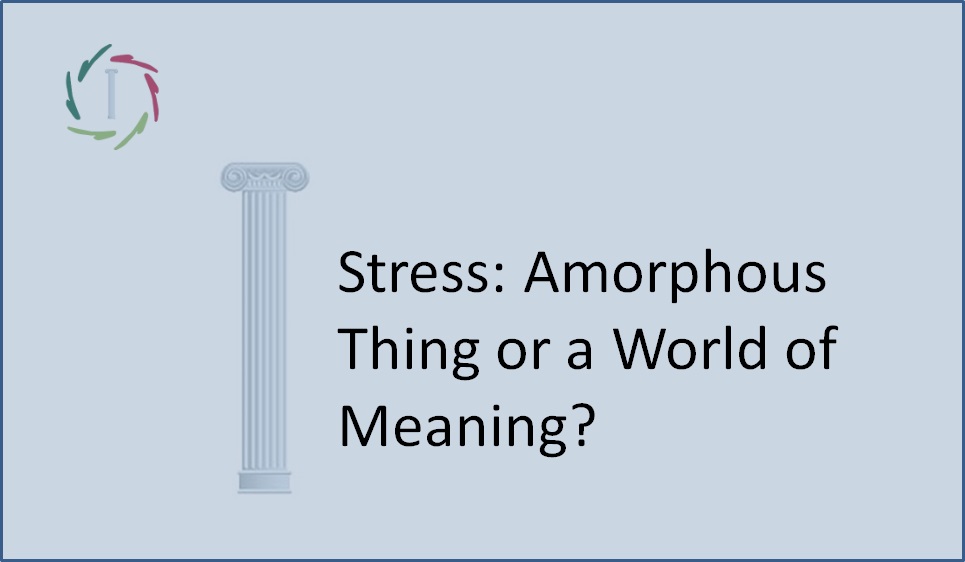Stress is a Perception of an Imbalance of Perceptions

Stress is played out at the level of perceptions. That doesn’t make it less real or bodily or worthy of many people’s attention or less capable to deeply influence the bottom line of any company.
Responsibility, no guilt
It’s always important to note: the fact that stress is a perception, doesn’t make you guilty. It doesn’t make you a weak person. It also shouldn’t diminish responsibility of others.
We are all responsible for ourselves and each other.
Blaming others makes a world of increasing guilt and diminished caring.
Shared responsibility makes a world of diminishing guilt and increased caring.
So, without guilt, you might be ready for the following.
Stress is a feeling.
As any feeling, one can approach it from a psychological viewpoint and from a somatic (bodily) viewpoint. What you approach, is the same thing: a body-mind happening.
The focus of AURELIS is the psychological viewpoint.
Feelings and thoughts
are generally seen as quite distinct from one another. This has been the case for many centuries in the past. Yet brain science shows that cognitions (thoughts) and emotions (or feelings) are inseparable in many ways.
Psychologically, w can differentiate them in more abstract ways, yet in our concrete human mental processing, thinking and feeling are much closer together than is generally thought and has been thought.
In this sense, one may converge the thinking and feeling side concerning stress into:
‘Stress is a perception’
of ‘stressors’ (= stress inducing circumstances).
Not the concrete stressors provoke the stress. By themselves, they are meaningless. They are pure ‘forms’. Deep meaning only comes to being through a meaning-giver. [see: ‘Meaning’]
Or: one can widen the term ‘stresor’ towards encompassing the intra-personal reaction to it. In such case, the ‘stressing’ part within these stressors is about an (im)balance of – again – perceptions:
- of wanting -> perception makes the difference between a ‘pure wanting’ and a ‘wanting out of frustration’
- of not being able to -> perception makes that what one is not ‘able to’ more or less insurmountable.
And then:
‘Stress is the reaction to that perception.’
which – not to make things unduly complex but also not too simple – can be seen as part of the perception itself. For instance, one feels one’s body react, then incorporates this into his perception of why the body would be reacting this way… which also aids in forming the perception itself.
You see?
This may all be a bit counter-intuitive. That’s why its being based on science is important. Even so, it’s always OK to remain skeptical and feel at yourself whether you may agree.
The conclusion of all this is that you, dear reader, are mainly responsible for your stress and that of other.
We share responsibility
and that’s a good thing.


